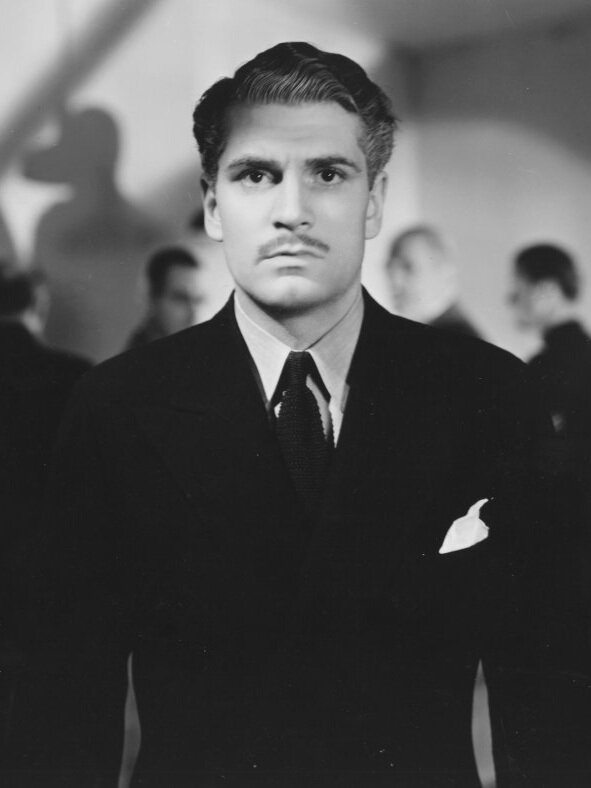ARTICLE: Decoding the Classics — 'Rebecca'
The Motion Picture Production Code, also known as the Hays Code after censor/stick-in-the-mud Will Hays, regulated film content for nearly 40 years, restricting, among other things, depictions of homosexuality. Filmmakers still managed to get around the Code, but gay characters were cloaked in innuendo, leading to some necessary decoding.
This breathlessly British melodrama is best remembered today for three reasons: A. as the only Alfred Hitchcock film to win a Best Picture Academy Award; B. as Joan Fontaine’s star-making vehicle, which she drove with the top down to her own Oscar the following year in Hitchcock’s Suspicion; and C. as one of the most thinly-veiled lesbian cautionary tales of the Hays Code era of Hollywood filmmaking.
The late Joan Fontaine stars as the otherwise unnamed “The Second Mrs. de Winter,” whose unenviable task is to fill the shoes of The First Mrs. de Winter, the titular Rebecca. According to everyone who knew her, Rebecca not only walked in beauty like the night, but snatched everyone’s wigs while she was at it. She (allegedly) drowned while sailing. Hailing from a common background and seemingly always on the verge of bursting into tears, the second Mrs. de Winter pales in comparison to the first.
Providing little help but a fantastic mustache is Laurence Olivier as brooding widower Maxim de Winter. Providing no help whatsoever but owning the entire film is Judith Anderson as the haunting housekeeper Mrs. Danvers, whose devotion to Rebecca borders on the macabre. Danvers establishes herself as the one true Supreme in the house of de Winter when she greets the mousy new Missus with an imperious air usually reserved for Dame Maggie Smith or RuPaul doling out challenges to her gurls.
Much is made about the infamous scene where Danvers rifles through Rebecca’s underwear, but before we get to that, let’s just talk about Mr. de Winter for a second. He’s seemingly incapable of loving his new bride when they return to their home, the storied Manderley manor, where he only grows more distant and cold. He doesn’t even notice his wife’s attempts at a glamorous makeover, mostly because he can’t see through all the shade he’s throwing.
They must be in the library since Max is clearly in the mood to read.
As determined as a freshman drama major trying to find a boyfriend in her department’s production of Rent, the second Mrs. de Winter even offers to be Max’s companion — if he’s not in love with her. Though eventually established as an avowed heterosexual, Maxim de Winter’s initial ambivalence to his wife is open to interpretation to queer viewers. For instance, his inexplicable rage — he admits to flying off the handle for no reason at all — could be a product of his own sexual identity crisis, much like Dennis Quaid’s closeted, self-loathing boozer in Todd Haynes’s Far From Heaven.
Perhaps that’s a bit of a stretch, but Maxim does admit that he never loved Rebecca…right after admitting (spoiler!)… Turns out Rebecca was kind of a trash bag and carried on affairs indiscriminately; she fell and hit her head after Max confronted/slapped her about it. He’s not gay after all, just kind of a murderer, which in 1940 is a LOT better. And he gets off scot-free. Mrs. Danvers, however, is not so lucky.
The only thing Danvers is really guilty of is loving too much. Now let’s go back to that infamous scene, shall we? Always fond of a dramatic entrance, Mrs. Danvers catches the second Mrs. de Winter snooping around Rebecca’s room, which has remained untouched since her death.
Instead of clawing her eyes out then tossing her body into the oft-discussed sea, Danny (as Rebecca so affectionately referred to her) shows the mousy upstart what a friggin’ lady looks like. Or at least, what a friggin’ lady dresses like. Danvers dives into Rebecca’s closet and comes out of her own. The tension is palatable between the two women; she’s at once seducing the second Mrs. de Winter while mourning the first.
SOURCE: IndieWire



